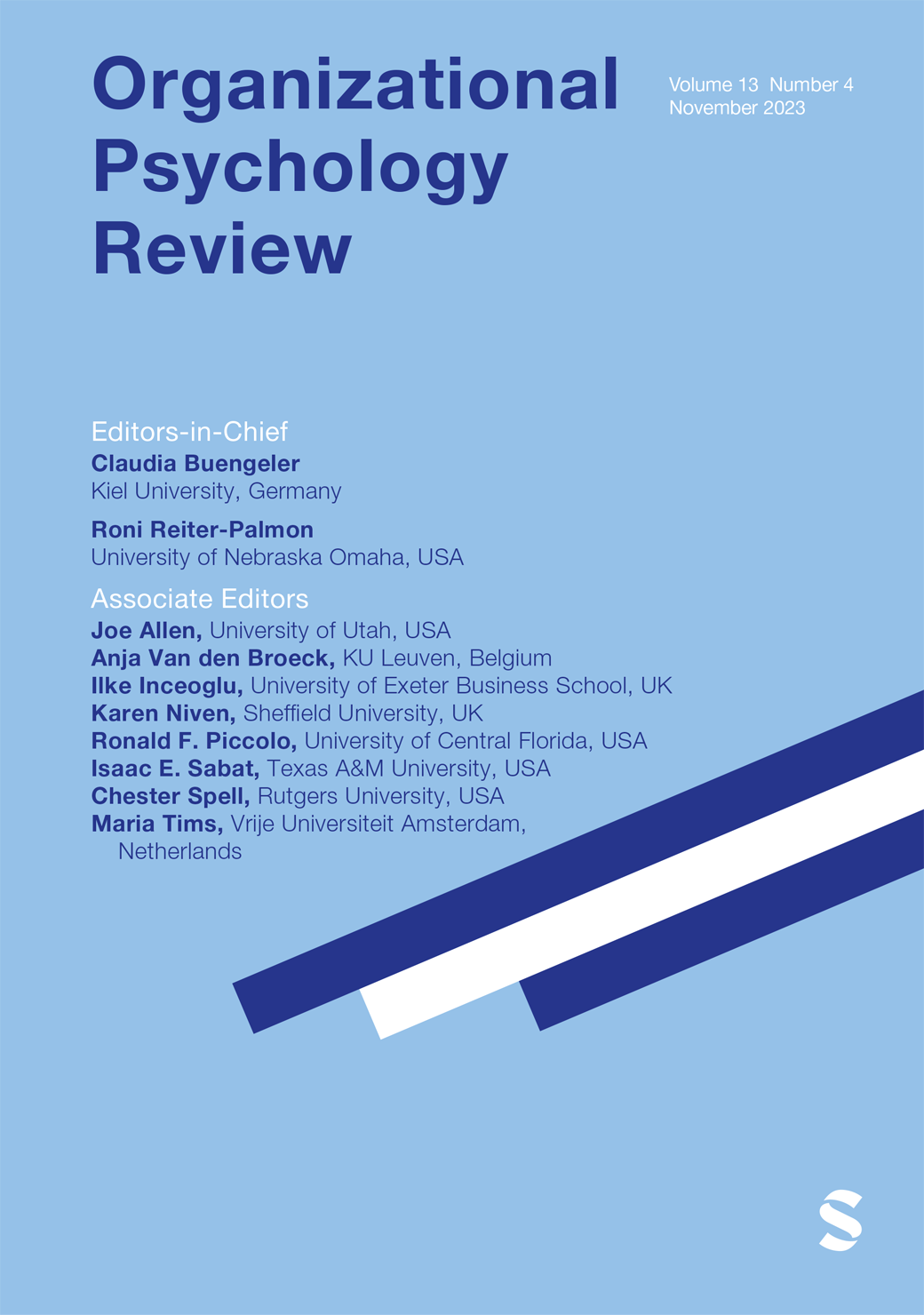A balanced view of mindfulness at work
IF 7.1
1区 心理学
Q2 MANAGEMENT
引用次数: 16
Abstract
Mindfulness has grown from an obscure subject to an immensely popular topic that is associated with numerous performance, health, and well-being benefits in organizations. However, this growth in popularity has generated a number of criticisms of mindfulness and a rather piecemeal approach to organizational research and practice on the subject. To advance both investigation and application, the present paper applies The Balance Framework to serve as an integrative scaffolding for considering mindfulness in organizations, helping to address some of the criticisms leveled against it. The Balance Framework specifies five forms of balance: 1) balance as tempered view, 2) balance as mid-range, 3) balance as complementarity, 4) balance as contextual sensitivity, and 5) balance among different levels of consciousness. Each form is applied to mindfulness at work with a discussion of relevant conceptual issues in addition to implications for research and practice. In order to appreciate the value of mindfulness at work researchers and practitioners might want to consider both the benefits and potential drawbacks of mindfulness. This paper presents a discussion of both the advantages and possible disadvantages of mindfulness at work organized in terms of the five dimensions of an organizing structure called The Balance Framework.平衡地看待工作中的正念
正念已经从一个晦涩的主题发展成为一个非常受欢迎的话题,它与组织中的许多绩效、健康和福祉有关。然而,这种受欢迎程度的增长已经产生了一些对正念的批评,以及对该主题的组织研究和实践的相当零碎的方法。为了推进研究和应用,本文将平衡框架作为一个综合框架来考虑组织中的正念,帮助解决一些针对它的批评。平衡框架规定了五种形式的平衡:1)平衡作为温和的观点,2)平衡作为中间范围,3)平衡作为互补性,4)平衡作为上下文敏感性,5)平衡在不同层次的意识。每种形式都应用于工作中的正念,除了对研究和实践的影响外,还讨论了相关的概念问题。为了理解正念在工作中的价值,研究人员和从业者可能需要考虑正念的好处和潜在的缺点。本文从一个叫做“平衡框架”的组织结构的五个维度来讨论正念在工作中的优点和可能的缺点。
本文章由计算机程序翻译,如有差异,请以英文原文为准。
求助全文
约1分钟内获得全文
求助全文
来源期刊

Organizational Psychology Review
Multiple-
CiteScore
10.00
自引率
1.60%
发文量
25
期刊介绍:
Organizational Psychology Review is a quarterly, peer-reviewed scholarly journal published by SAGE in partnership with the European Association of Work and Organizational Psychology. Organizational Psychology Review’s unique aim is to publish original conceptual work and meta-analyses in the field of organizational psychology (broadly defined to include applied psychology, industrial psychology, occupational psychology, organizational behavior, personnel psychology, and work psychology).Articles accepted for publication in Organizational Psychology Review will have the potential to have a major impact on research and practice in organizational psychology. They will offer analyses worth citing, worth following up on in primary research, and worth considering as a basis for applied managerial practice. As such, these should be contributions that move beyond straight forward reviews of the existing literature by developing new theory and insights. At the same time, however, they should be well-grounded in the state of the art and the empirical knowledge base, providing a good mix of a firm empirical and theoretical basis and exciting new ideas.
 求助内容:
求助内容: 应助结果提醒方式:
应助结果提醒方式:


